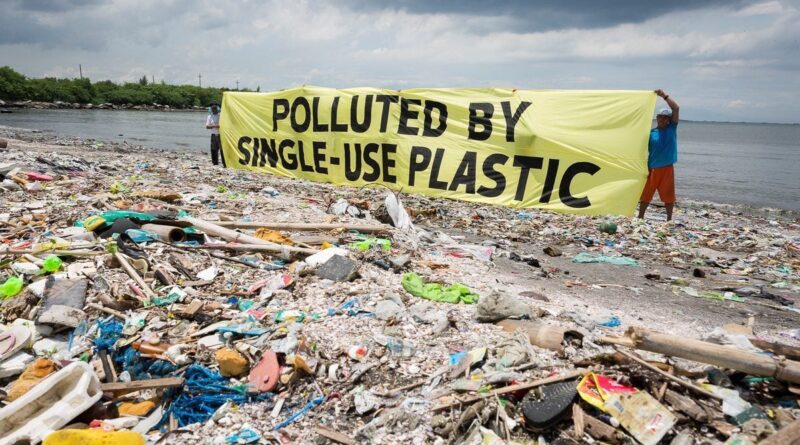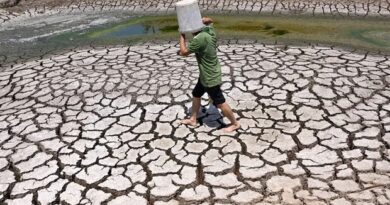Research project targets plastic particles and climate change as driving factors for antimicrobial resistance
A research project based at Heidelberg University and Heidelberg University Hospital targets plastic particles and climate change as driving factors for the spread of antimicrobial resistance (AMR) in the environment.
participating researchers will investigate socio-ecological interactions within aquatic habitats affected by plastic pollution, contamination with antibiotics and climatic influences, and explore environmental and health-related impacts in the context of Planetary Health.
The project is led by Prof. Dr Joacim Rocklöv, Humboldt Professor at the Interdisciplinary Center for Scientific Computing and the Heidelberg Institute of Global Health, and comprises eleven international partners, including the Research Institute for Tropical Medicine in the Philippine Department of Health. The European Union is funding the four and a half-year international collaboration project with more than six million euros.
“Scientific research is needed to show evidence on how plastic pollution in bodies of water combined with antibiotic contaminants is contributing to antimicrobial resistance spreading in the environment, threatening the health of people, animals, and ecosystems – especially in times of climate change,” explains Prof. Rocklöv, who heads the Climate-Sensitive Infectious Diseases Lab (CSIDlab). Antibiotic-resistant bacteria are known to exist in the sea, in rivers, ponds or lakes, presenting a risk of infection, in particular for people who bathe in these waters with open wounds.
At the same time, water environments are increasingly polluted by micro and macro plastic particles. “Bacteria can attach to the plastic particles, grow, and form entire colonies, creating a unique micro-ecosystem termed ‘the plastisphere’. The genes that the bacteria exchange can include those responsible for antibiotic resistance,” says Dr Marina Treskova, a junior research group leader at the Interdisciplinary Center for Scientific Computing who co-directs the research along with Prof. Rocklöv. Plastic particles in turn serve as vehicles, delivering bacteria from one point to another via hydrological processes.
According to Dr Treskova, climate change can further exacerbate the spread of antimicrobial resistance in aquatic environments, for instance through heavy rainfall or lack of rain. “To halt this negative process and to protect planetary health, we have to understand these processes and their interactions to find solutions for monitoring and prevention,” says the scientist. Wastewater treatment plants present an important study site for the researchers as they collect wastewater from cities, including hospitals, and accumulate antibiotics, bacteria, and plastic waste.
A main aspect of the research carried out in the context of the “Community-based engagement and intervenTions to stem the spread of antimicrobial resistance in the aqUatic environments catalyzed by cLImate change and Plastic pollution interactions” (TULIP) project are social and political factors, in order to develop holistic countermeasures – including solutions inspired by nature itself. The research approach will be tested in the Philippines and in Italy.
“With TULIP, we hope to gain not only scientifically sound insights into the interrelationship between plastic pollution, AMR, and climate change but also translate them into policy recommendations, community actions and societal knowledge. We will collect data on the ground but also apply computer models to develop indicators and decision-making tools,” states Joacim Rocklöv. The epidemiologist, mathematician, and statistician is investigating climate-sensitive infectious diseases and their impact on public health under changing climatic conditions – an interdisciplinary approach of paramount importance for medicine, healthcare, climate change research, and policy consultation.
The TULIP consortium took up its work at the beginning of this year. The Heidelberg researchers cooperate with project partners in the Philippines who play a major role in implementing and coordinating the scientific work and outreach activities. Also involved are experts from universities and research institutes, non-academic partners, small and medium-sized businesses, and non-governmental organizations from Germany, Italy, the Netherlands, Sweden, Spain, and Monaco. The European Union is funding the TULIP project within the framework of Horizon Europe; it is part of the EU Planetary Health cluster.
Source: www.news-medical.net




